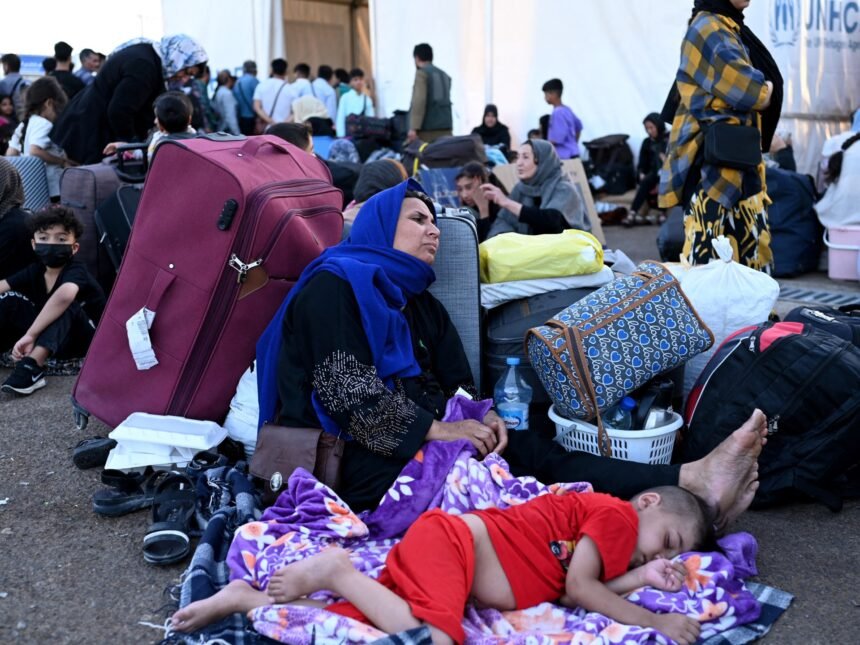Almost 450,000 Afghans have returned from Iran since early June, in accordance with the United Nations refugee company, after Tehran imposed a July 6 deadline for undocumented migrants and refugees to depart the nation.
The surge compounds Afghanistan’s present challenges because the impoverished nation struggles to combine waves of returnees from Pakistan and Iran since 2023, amid one of many world’s worst humanitarian crises after a long time of battle.
The UNHCR reviews that greater than 1.4 million individuals have “returned or been pressured to return to Afghanistan” this 12 months alone. Iran’s late Might directive probably impacts 4 million undocumented Afghans among the many roughly six million Afghan residents claimed by Tehran.
Border crossings elevated dramatically from mid-June, with some days seeing roughly 40,000 individuals coming into Afghanistan. Between June 1 and July 5, 449,218 Afghans returned from Iran, bringing the 2024 complete to 906,326, in accordance with an Worldwide Group for Migration spokesman.
Many returnees report experiencing strain from authorities, arrests, deportations, and monetary losses as a result of hasty departures. The disaster response has been hampered by vital cuts in international support, prompting requires elevated funding from the UN, worldwide NGOs, and Taliban officers.
The UN has cautioned that this mass return may additional destabilise Afghanistan, which already faces entrenched poverty, unemployment, and local weather change results. “Forcing or pressuring Afghans to return dangers additional instability within the area, and onward motion in direction of Europe,” the UNHCR stated on Friday.
Whereas Taliban officers advocate for a “dignified” return course of, Iranian media ceaselessly reviews mass arrests of “unlawful” Afghans. Iran’s deputy inside minister, Ali Akbar Pourjamshidian, acknowledged that whereas undocumented Afghans within the nation had been “revered neighbours and brothers in religion”, Iran’s “capacities even have limits”. He indicated the return course of “will probably be carried out step by step”.
Many Afghans had migrated to Iran for employment, sending very important remittances to households in Afghanistan. Returnee Ahmad Mohammadi instructed the AFP information company at a reception centre in Herat province, “If I can discover a job right here that covers our day by day bills, I’ll keep right here. But when that’s not attainable, we’ll be pressured to go to Iran once more, or Pakistan, or another nation.”
